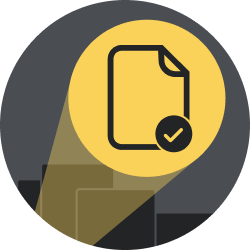Our Mission
“We must become undisciplined. The work we do now requires new modes and methods of research and teaching; new ways of entering and leaving the archives.”
— Christina Sharpe, In the Wake[1]
Our archives are vulnerable
No single archive is permanent, nor large enough to store all of our cultures at risk. Modern archival methods are robust, but no archive alone can withstand the multitudes of threats we are currently facing.
The destruction of knowledge and cultural heritage has happened, and therefore it can happen again. We are in the middle of that happening, whether it is caused by human action[2] or natural causes.[3] However, digital information can be copied easily and quickly.
Omnipresent knowledge
Safeguarding Research & Culture (SRC) is creating an alternative infrastructure for archiving and disseminating of cultural heritage and scientific knowledge. We seek to preserve cultural memory in a way that traditional archives cannot. Together, we can ensure that our cultural, intellectual and scientific heritage exists in multiple copies, in multiple places, and that no single entity or group of entities can make it all disappear.
Our archive is built according to the principles of FAIR[4] and CARE[5], based on open technologies and standards, and resilient against loss via meaningfully distributed storage.
We focus on publicly available material
Like websites, datasets and other media, that are being altered or deleted. Our collective memory manifests in different amplitudes and digital-born artefacts — from large datasets, spanning decades of research on society, to personal wikis and blogs on and by marginalised people. No matter its scope or origin, all of this knowledge was valuable to someone, somewhen, and carries with it a potential to be so again. We are equally interested in archiving big as well as small data.
Everyone can help
Everyone, from individuals to institutions, can participate by accessing, contributing, and supporting these archival infrastructures. Our work also includes documenting and providing resources and knowledge to enable participation in different aspects of this endeavour.
Learn more in our community about how to participate.
Taken from Donaldson, Sonya. 2021. “The Ephemeral Archive. Unstable Terrain in Times and Sites of Discord.” In The Digital Black Atlantic, edited by Roopika Risam and Kelly Baker Josephs. Debates in the Digital Humanities. Minneapolis: University of Minnesota Press. ↩︎
See for example NYT: Health Resources Vanish Following D.E.I. and Gender Orders, Atlantic: Why Is the Trump Administration Deleting a Paper on Suicide Risk?, Boston Globe: CDC removal of databases on sexual orientation, gender identity sparks alarm, and 404media: GitHub Is Showing the Trump Administration Scrubbing Government Web Pages in Real Time. ↩︎
See for example Smithsonian: Why Brazil’s National Museum Fire Was a Devastating Blow to South America’s Cultural Heritage and UN: Destruction of cultural heritage is an attack on people and their fundamental rights. ↩︎
Findable, Accessible, Interoperable, Reusable; see: Nature: The FAIR Guiding Principles for scientific data management and stewardship. ↩︎
Collective Benefit, Authority to Control, Responsibility, Ethics; see: The Global Indigenous Data Alliance: CARE Principles for Indigenous Data Governance. ↩︎
